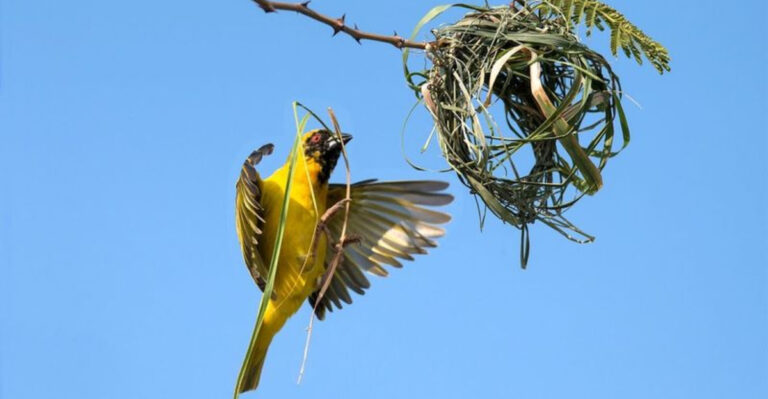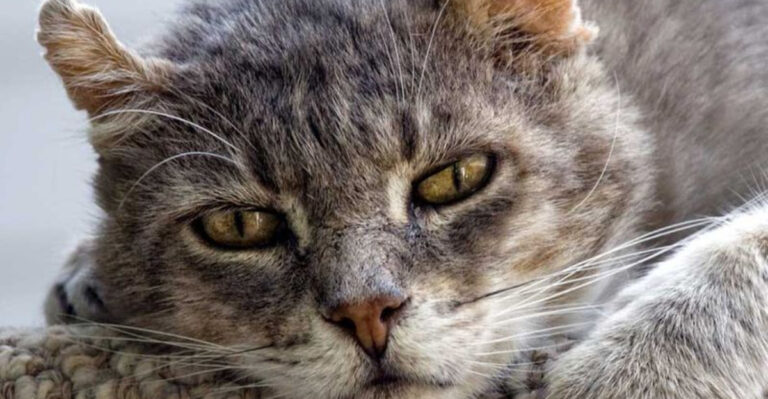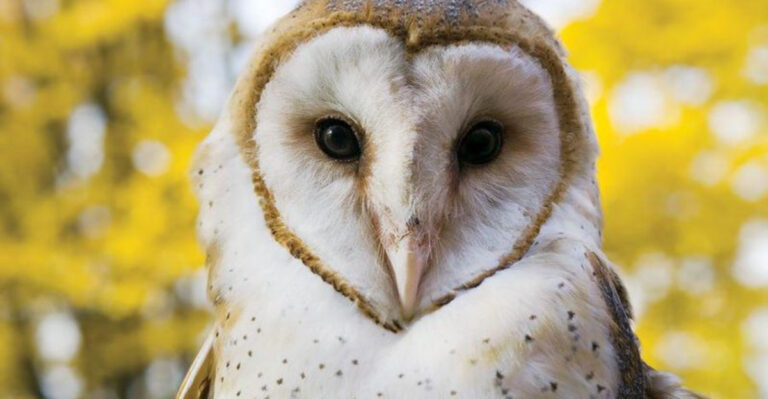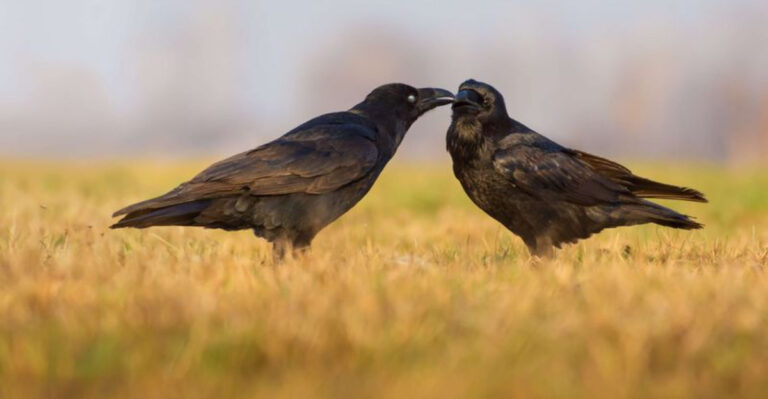22 Fascinating Creatures Spotted In The Sahara Desert
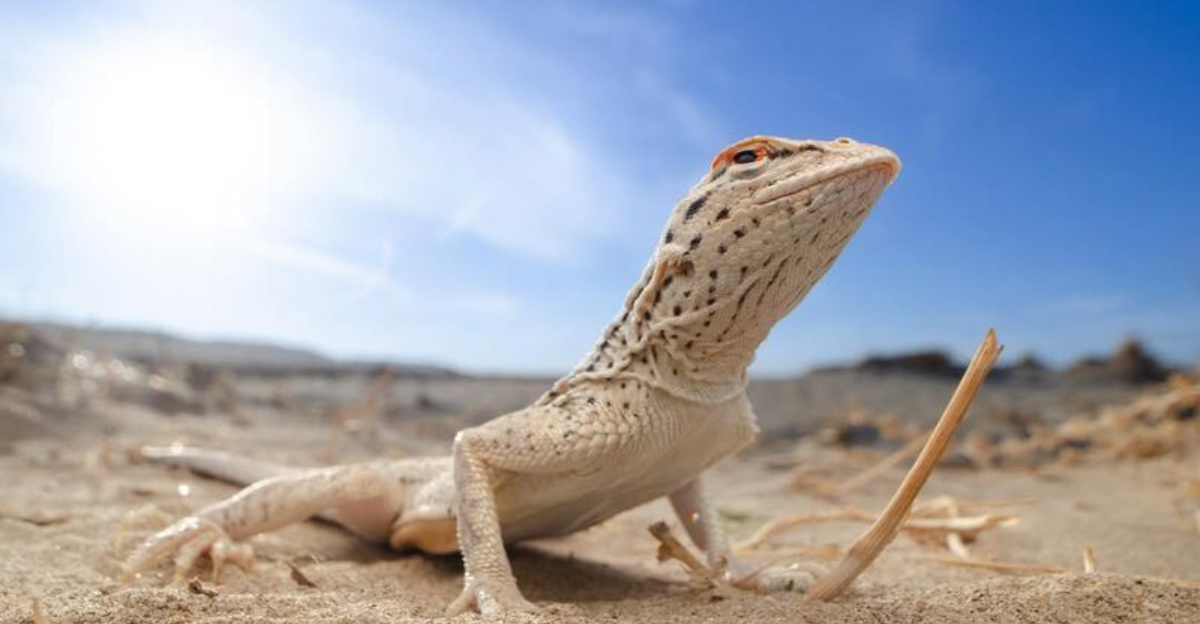
The Sahara Desert is a vast, arid expanse, teeming with life that survives against all odds. Beneath its sun-scorched sands and towering dunes lies a world of fascinating creatures, each uniquely adapted to thrive in this harsh environment.
From nimble lizards to majestic birds, the Sahara is a sanctuary of biodiversity waiting to be explored. Let’s embark on a journey to discover captivating inhabitants of this iconic desert.
1. Fennec Fox
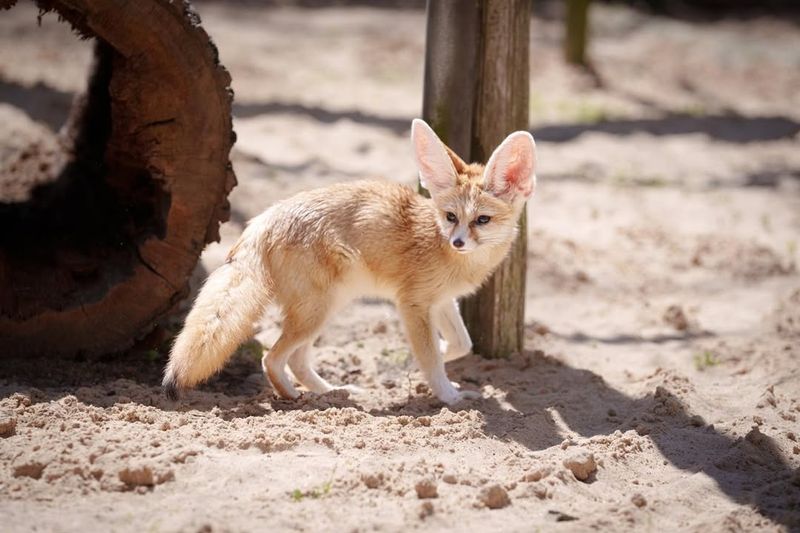
With ears that could rival a satellite dish, the fennec fox hears everything. These nocturnal creatures use their massive ears to dissipate heat and listen for prey beneath the sand.
At night, they emerge, dancing across the dunes with a nimble grace. Their sandy coat blends seamlessly with the desert, offering camouflage from predators.
2. Desert Horned Viper
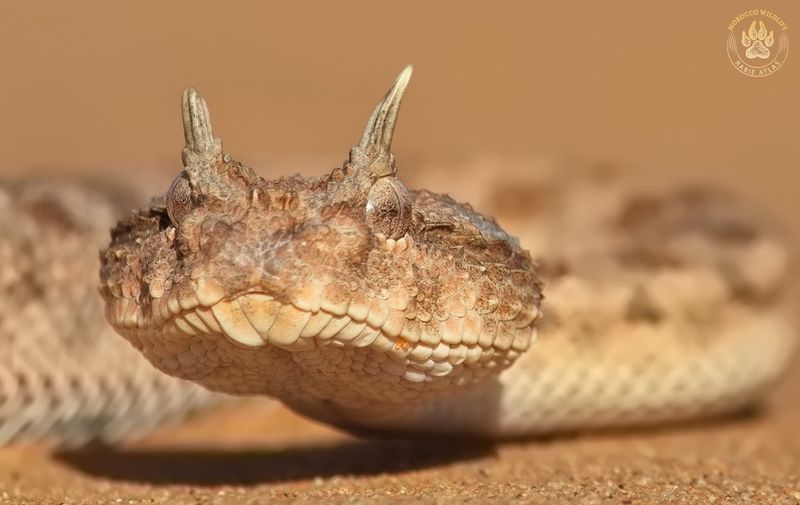
The desert horned viper slithers silently across the Sahara’s sands, a master of stealth. Its unique sidewinding movement leaves mesmerizing patterns in its wake.
Those tiny horns above its eyes aren’t just for show; they help it blend into the sandy terrain. This snake waits patiently for unsuspecting prey, striking with lightning speed.
Fascinatingly, it can regulate its body temperature to survive extreme heat.
3. Dromedary Camel
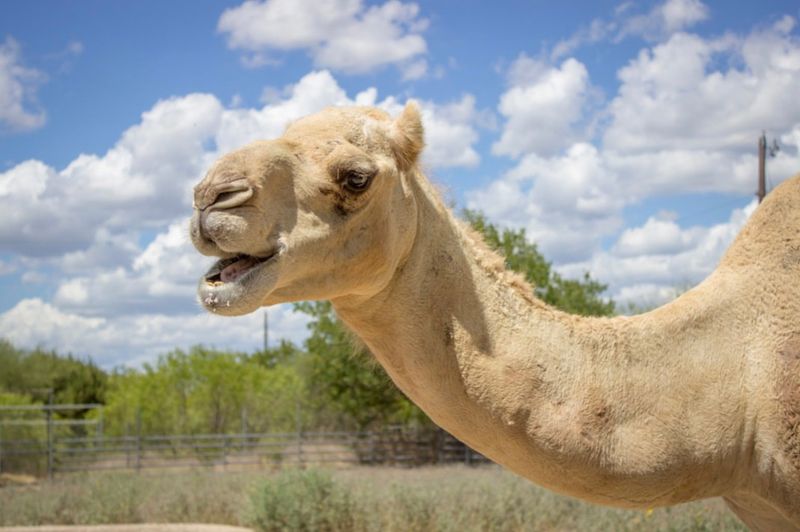
The dromedary camel, often called the ‘ship of the desert,’ carries its world on a single hump. With long eyelashes and closable nostrils, it strides effortlessly through sandstorms.
Its feet, wide and padded, glide over the sand like skis. Camels can endure days without water, an adaptation that baffles many.
Did you know they can drink up to 40 gallons of water in one go? Truly remarkable.
4. Saharan Silver Ant
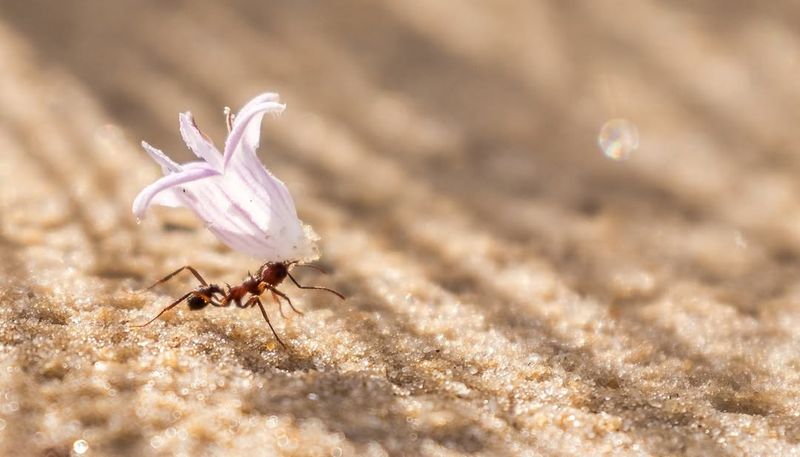
Meet the Saharan silver ant, nature’s sunbather. These ants withstand temperatures that would fry most creatures, thanks to their reflective silver coats and long legs.
They dash across scorching sands for mere minutes, scavenging before retreating to their cool nests. It’s a race against time, but they’re perfectly equipped.
5. Addax Antelope
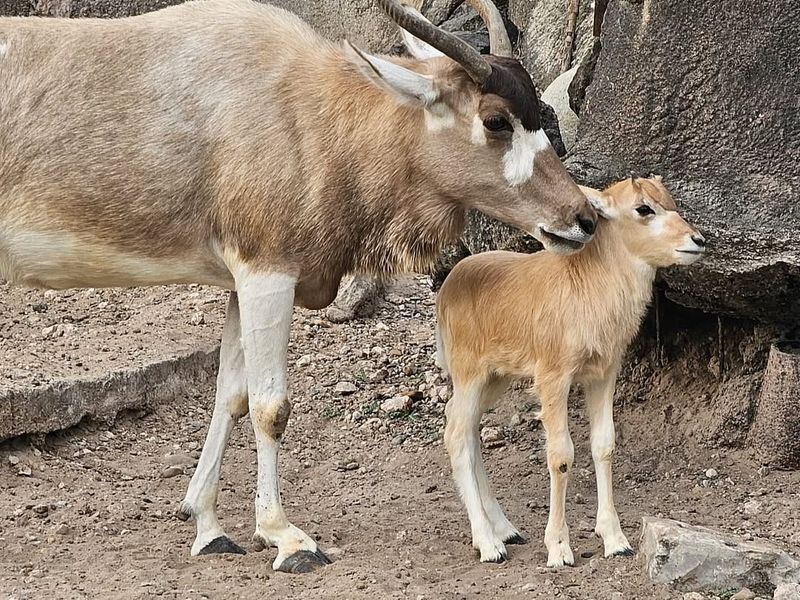
Graceful and ghostly, the addax antelope roams the Sahara with an air of mystery. Its spiraled horns and white coat reflect sunlight, helping it stay cool.
Adapted to scarcity, it thrives on sparse vegetation and can go without water for long periods. These antelopes travel in small herds, guided by the matriarch.
6. Pale Fox
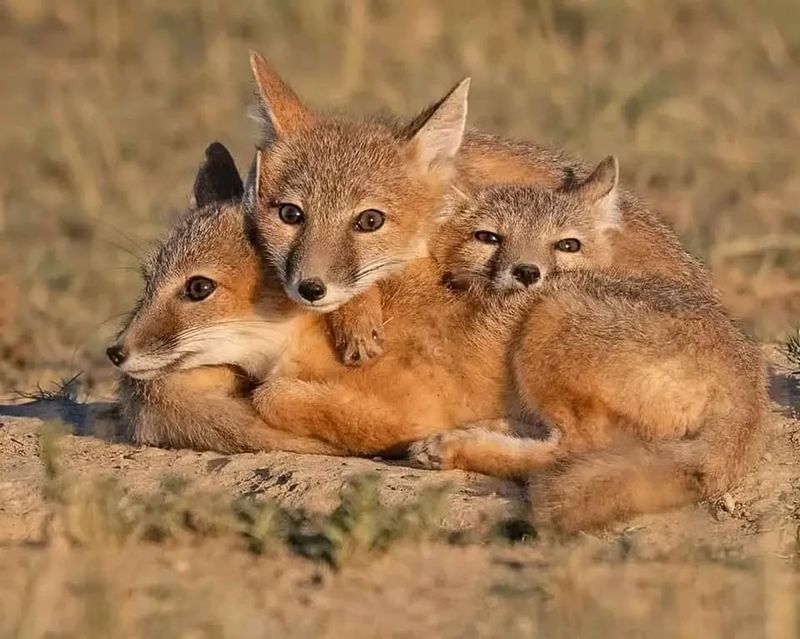
The pale fox, a true desert dweller, walks the Sahara with feline-like elegance. Its slender frame and long bushy tail balance perfectly across rocky terrains.
This omnivore feasts on everything from insects to fruits, making the most of scarce offerings. Social and playful, they’re often seen in pairs or small groups.
Their ability to dig intricate burrows offers refuge from the desert’s wrath.
7. Scarabaeus Beetle
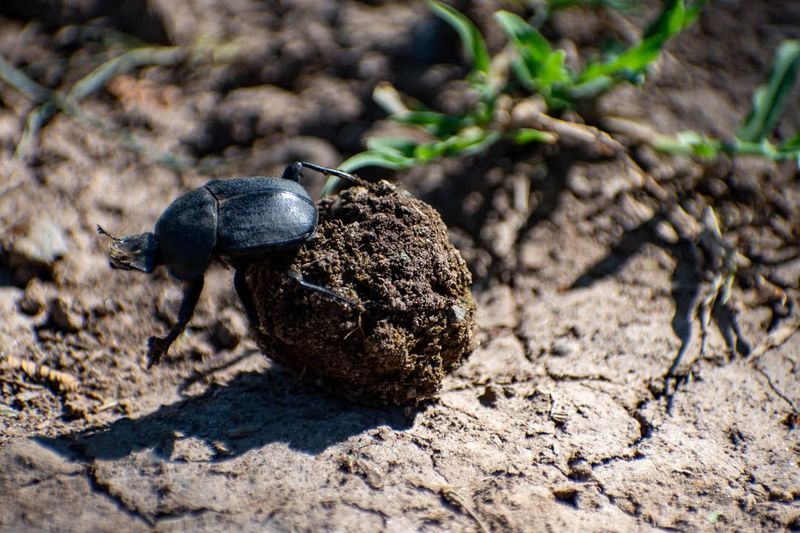
Rolling through the desert like a diligent janitor, the Scarabaeus beetle is nature’s recycler. Known as a dung beetle, it expertly rolls dung into balls, which serve as food and breeding ground.
This beetle’s strength is legendary, capable of moving objects many times its weight. While its life may seem humble, its role in nutrient recycling is crucial for desert ecology.
8. Sandfish Skink
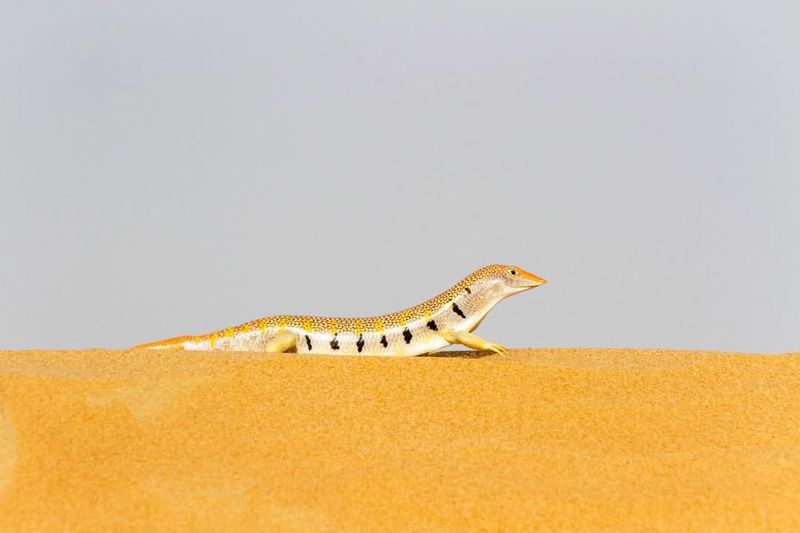
Imagine a fish that swims through sand! The sandfish skink does just that, gliding beneath the surface with ease.
This lizard’s smooth, elongated body reduces friction, allowing it to move effortlessly. As it ‘swims,’ it hunts for insects, staying hidden from predators.
Its shiny, metallic scales sparkle under the sun, a testament to its unique lifestyle.
9. Dung Beetle
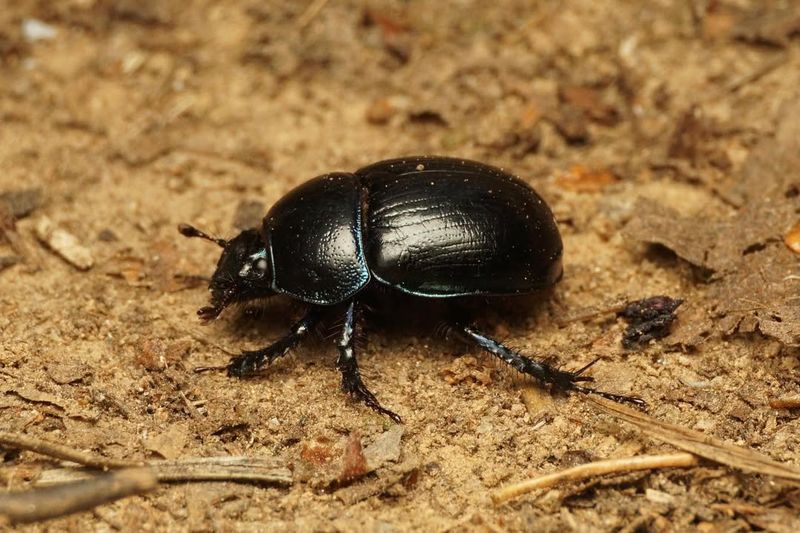
Dung beetles, the unsung heroes of the desert, work tirelessly rolling dung across the dunes. These industrious insects are integral to nutrient recycling, turning waste into a life-sustaining resource.
With powerful back legs, they roll their dung treasures to safe spots for feeding and nesting. Their persistence is legendary, even navigating by the Milky Way to find their way home.
10. Barbary Sheep
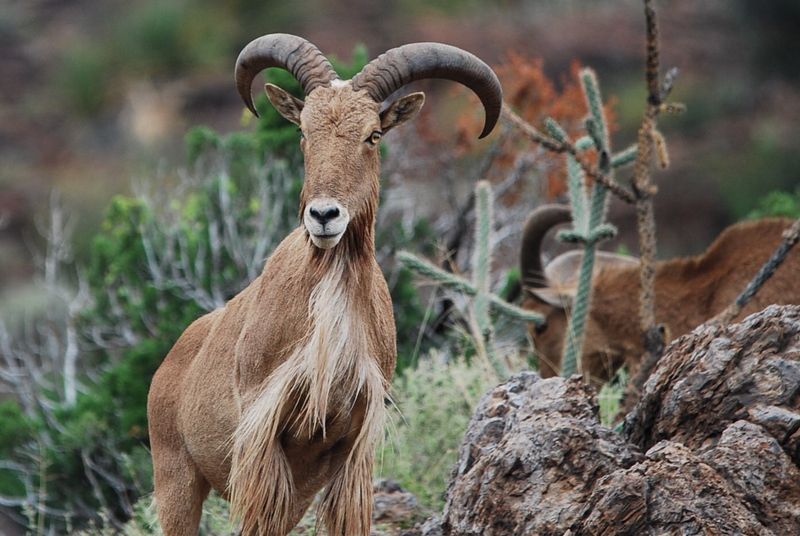
Barbary sheep, with their magnificent curved horns, are masters of the rocky cliffs. Agile and sure-footed, they navigate the harsh Sahara terrain with ease, feeding on sparse vegetation.
Their coats blend with the rocky landscape, a perfect camouflage. Social creatures, they move in herds led by dominant males.
Once overhunted, conservation efforts now protect these resilient desert dwellers.
11. Saharan Cheetah
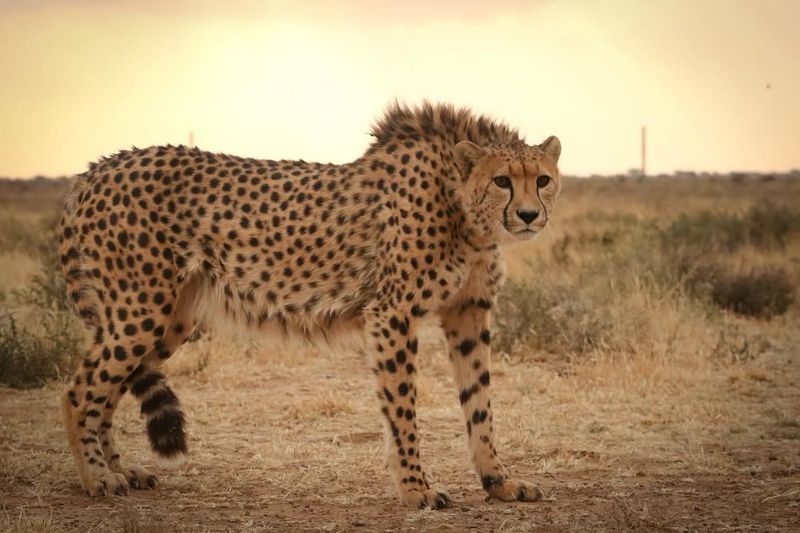
The Saharan cheetah, with its lean frame and distinctive tear marks, is built for speed. This elusive predator races across the desert, its pale coat blending with the landscape.
Hunting mostly at night, it relies on stealth and surprise to capture prey. Incredibly, it requires far less water than its savanna cousins, a true testament to its adaptation.
12. Desert Monitor Lizard
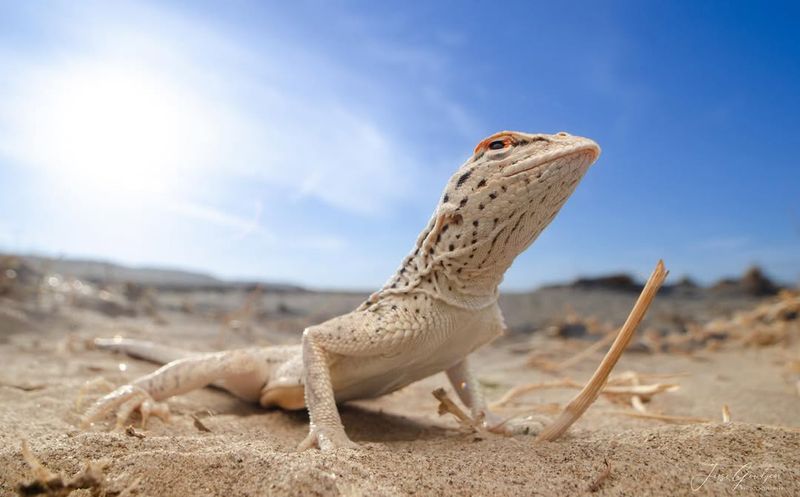
The desert monitor lizard, a scaled sentinel of the Sahara, basks in the sun with an ancient grace. Its keen senses and powerful limbs make it a formidable predator.
This lizard’s diet is diverse, including insects, small mammals, and even other reptiles. With a long forked tongue, it tastes the air, tracking its next meal.
13. Gerbil
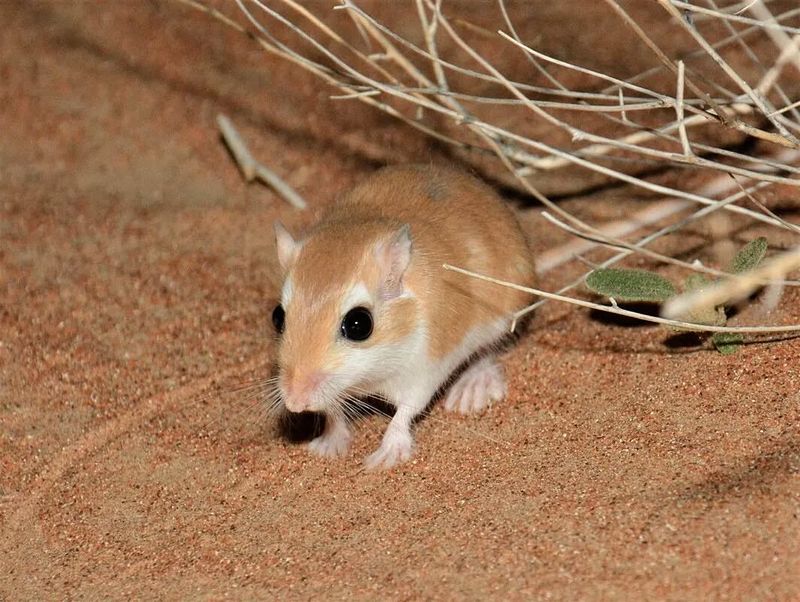
The desert gerbil, with its big eyes and bounding steps, is a creature of the night. These rodents navigate the Sahara’s cool evenings, foraging for seeds and plants.
Their large hind feet allow them to leap away from predators, a handy trick in the wild. Living in burrows, they create intricate tunnel systems, safe havens from the desert’s heat.
14. Desert Hedgehog
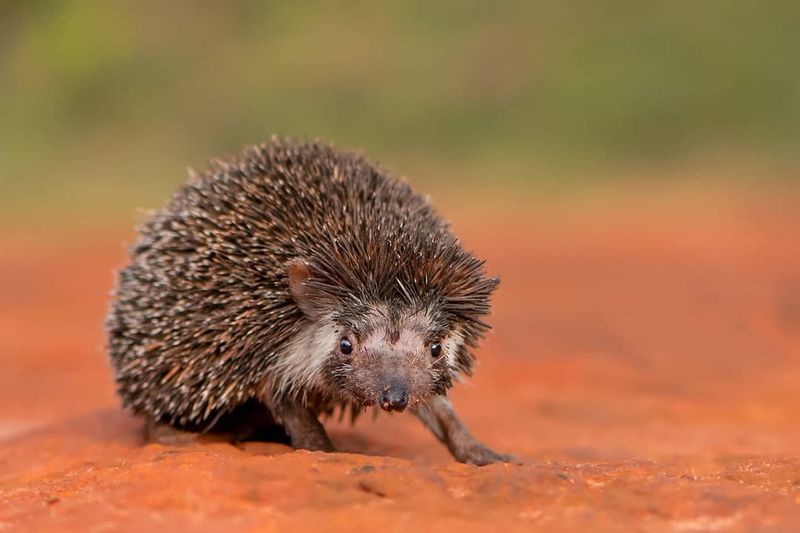
The desert hedgehog rolls through the Sahara like a prickly tumbleweed. When threatened, it curls into an impenetrable ball, its spines deterring would-be predators.
Nocturnal by nature, it forages under the cover of darkness, nibbling on insects and plants. This small mammal’s ability to withstand extreme heat and dehydration is remarkable.
Who knew such a tiny creature could master the desert?
15. Sand Cat
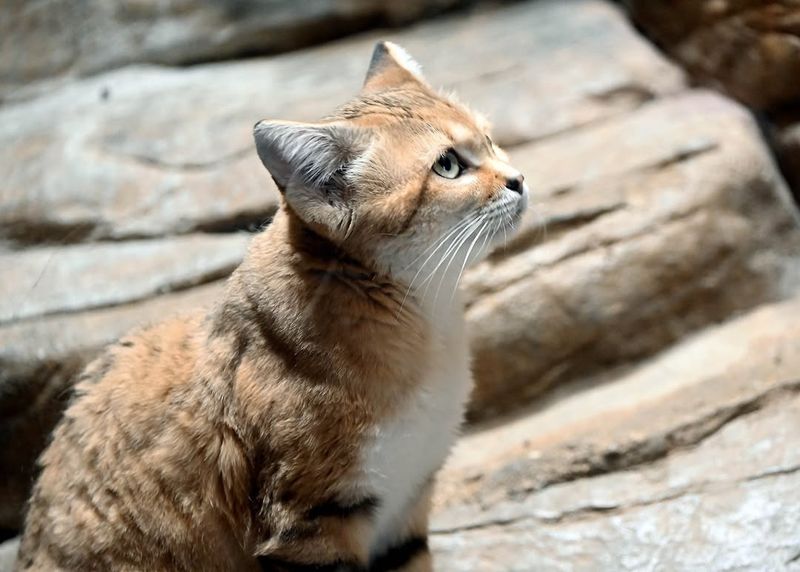
The elusive sand cat is the ultimate desert feline. Its dense, fluffy fur insulates against cold nights, while its large ears detect the faintest sounds.
This solitary hunter prowls the Sahara in search of rodents and birds. Its paws, covered in thick fur, glide silently over the sand, leaving no trace.
With a coat that mirrors the desert, it vanishes into the landscape.
16. Desert Sparrow
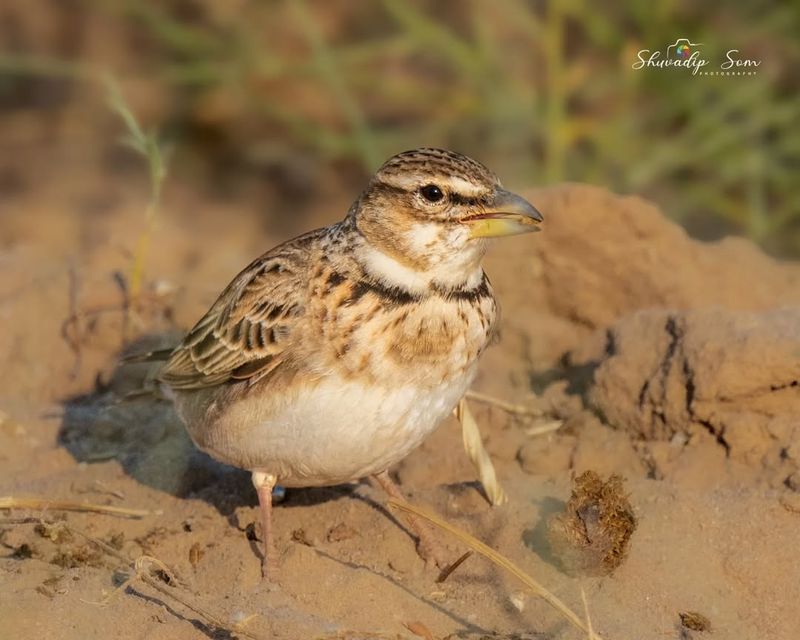
The desert sparrow, a small but resilient songbird, thrives in the Sahara’s arid climate. Perched on thorny bushes, it sings a song of survival and adaptability.
These sparrows are expert foragers, feeding on seeds and insects. Their nests, cleverly hidden, offer protection from predators.
Social and lively, they often flock together, a joyful presence in an unforgiving land.
17. Saharan Frog
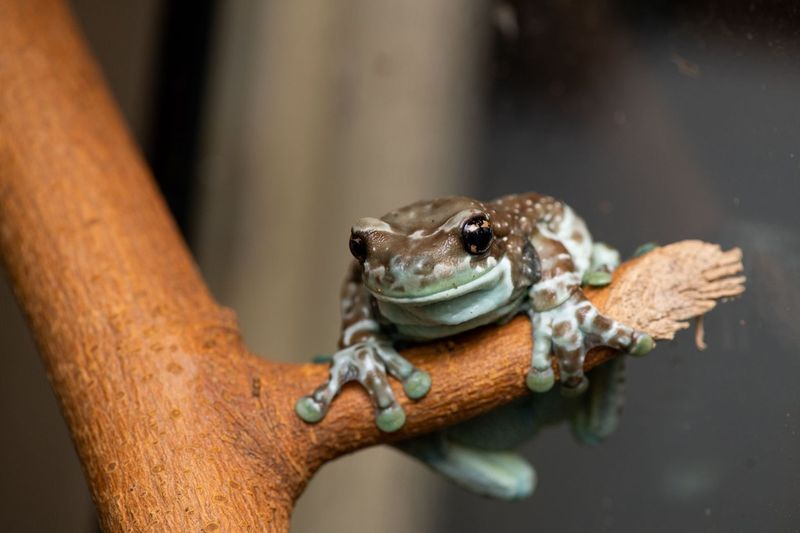
Frogs in the desert? The Saharan frog defies expectations, living near oases where water is scarce.
Its skin, adapted to retain moisture, allows it to thrive in such an arid environment. When the rains come, it emerges in full force, breeding in temporary pools.
Its croak echoes, a surprising sound in the desert’s vast silence.
18. Desert Locust
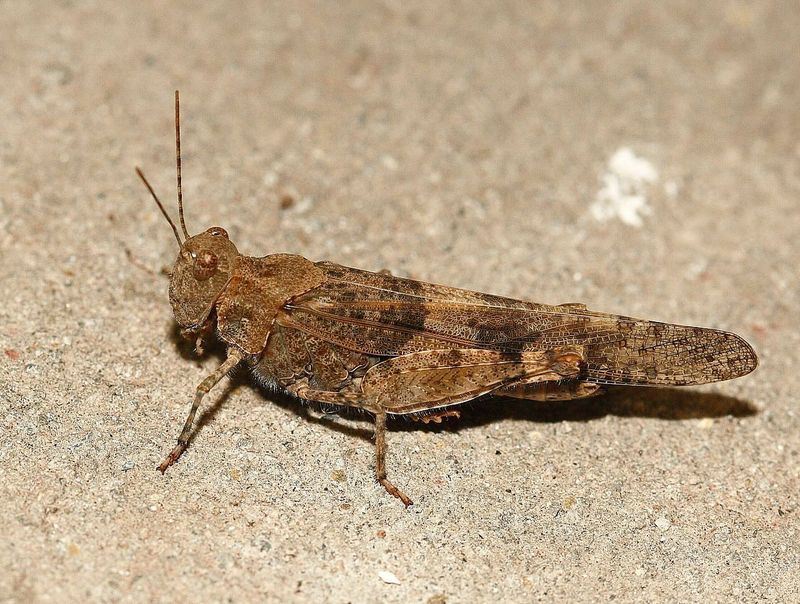
The desert locust, a force of nature, swarms the Sahara in search of food. When populations explode, they transform from solitary into gregarious forms, a sight to behold.
These voracious eaters can decimate vegetation, turning green landscapes barren. Despite their destructive nature, they play a role in the desert’s ecosystem.
19. Leptotyphlops Macrorhynchus
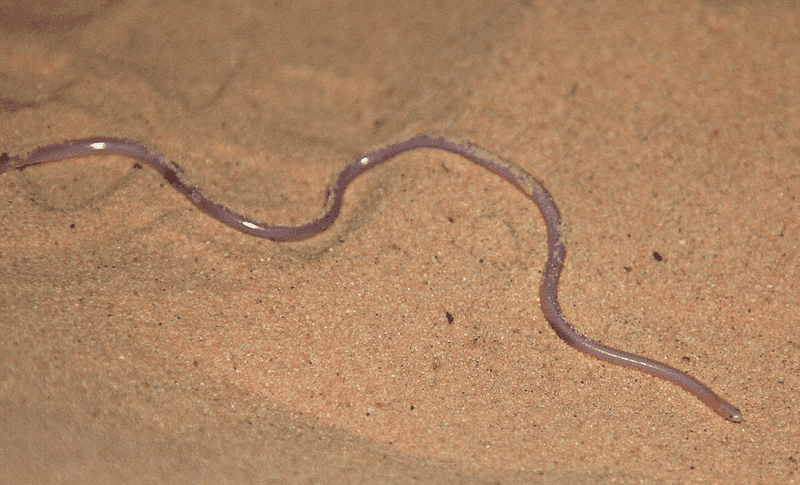
Meet Leptotyphlops Macrorhynchus, the Sahara’s tiniest snake. Often mistaken for a worm, this slender creature burrows through the sand in search of termites.
Its small size is deceptive, as it plays a vital role in controlling pest populations. Rarely seen on the surface, it leads a secretive life underground.
20. Rüppell’s Fox
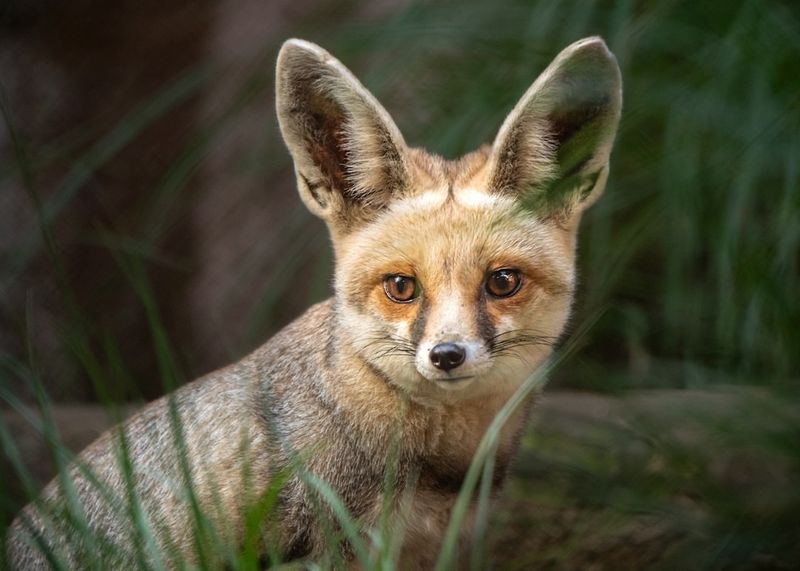
Sleek, shy, and swift, Rüppell’s fox is built for the desert life. Its large ears help regulate heat while picking up the softest desert sounds.
These foxes are expert diggers, creating burrows to escape the sun’s wrath. Agile and quiet, they travel solo or in pairs, hunting insects, rodents, and fruit.
Their sandy coats help them disappear into the dunes like whispers in the wind.
21. African Wildcat
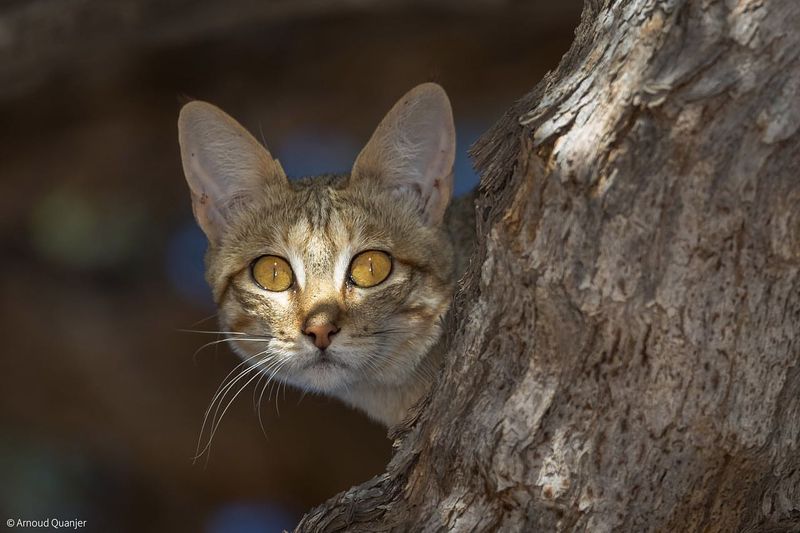
The ancestor of the domestic house cat still roams the Sahara. With striped fur and piercing eyes, the African wildcat is a stealthy, solitary hunter.
It prowls mostly at night, preying on small mammals and reptiles. Adapted to extreme dryness, it gets most of its water from food.
Despite its wild nature, it looks uncannily like a tabby you’d find curled up at home.
22. Spiny-Tailed Lizard
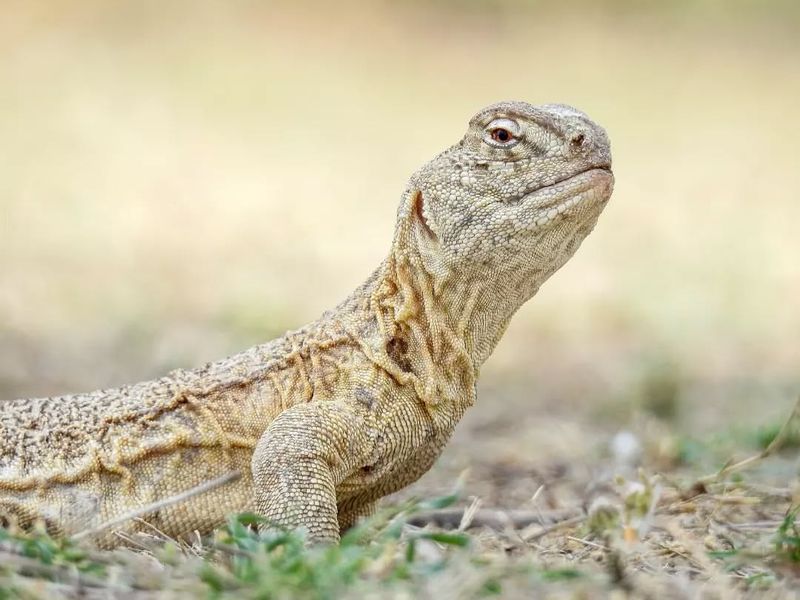
Chunky, tough, and surprisingly colorful, the spiny-tailed lizard thrives in the hottest parts of the Sahara. Its blunt tail is covered in sharp scales, used for defense and balance.
A strict herbivore, it grazes on desert plants and flowers with surprising energy. During the hottest hours, it shelters in rocky crevices, emerging to soak up the morning and evening sun.

